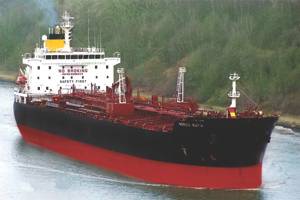Chemoil Postions for Expansion in N. America
Chemoil said it will continue to pioneer the provision of sustainable marine fuel solutions to help ship operators meet the emissions reductions requirements proposed for enforcement across the coastlines of the U.S. and Canada. This follows a joint application to the IMO by both the USA and Canada at the end of March 2009 to create an Emissions Control Area (ECA) that would stretch across more than 200 nautical miles of coastal waters to help lower emissions from vessels traveling to and from ports in the region.
Current ECA regulations limit sulfur levels to 1.5% and will be further reduced to 1.00% in March 2010 and 0.1% by early 2015, thereby creating concerns amongst shipping companies about the potential operational and commercial implications of meeting these requirements in a North American zone. This has been compounded by further pending restrictions on emissions of NOx and particulate matter.
In addition, July 1, 2009 will mark the application of first substantial ruling for a reduction in sulfur from marine fuel in North America. The California Air Resources Board (CARB) regulation will require shipowners operating within 24 miles of the California coastline to burn either marine gas oil (MGO), with a maximum of 1.5% sulfur, or marine diesel oil (MDO), with a maximum of 0.50% sulfur in their main engines, auxiliary engines or boilers.
Thereafter, beginning January 1, 2012, vessel operators will be required to use MGO or MDO with a maximum 0.10% sulphur in their main and auxiliary engines. Operators who fail to comply with the rules would be subject to fines, penalties and potential exclusions from the ports of California.
Chemoil recently completed the expansion of its Carson Terminal in Los Angeles to provide additional storage for cleaner products and continues with its plans to increase storage capacity to support this business at its Long Beach Marine Terminal.
“The US has proven that it is serious about accelerating its efforts to reduce shipping emissions and understandably this poses a challenge to all members of the shipping community,” said Adrian Tolson, Vice President, Sales and Marketing, Chemoil. “Collectively we must rise to this and find solutions that are both operationally and commercially sustainable. “













